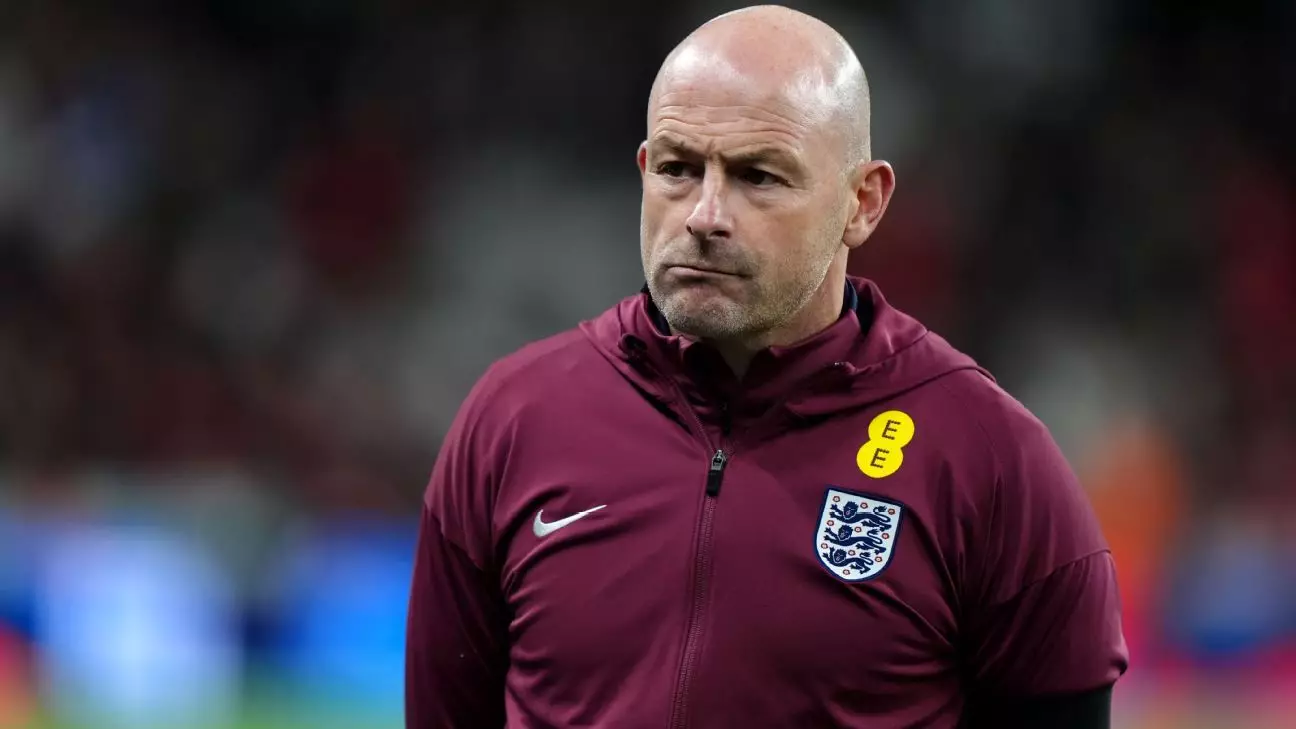Lee Carsley, the interim manager of England’s national football team, seemed to welcome the challenge of integrating a plethora of young attacking talent into a cohesive unit. The abundance of quality, featuring players like Bukayo Saka, Jude Bellingham, Phil Foden, Cole Palmer, and Anthony Gordon, made for a tantalizing proposition. However, the enthusiasm for experimentation resulted in a disappointing outcome, culminating in a disheartening 2-1 defeat to Greece in the UEFA Nations League. This match has not only sparked discussions about tactical validity but also raised questions regarding Carsley’s future at the helm.
The game served as a bittersweet realization for Carsley: while it is enticing to consider the attacking potential of several young stars in tandem, football is a team sport that thrives on balance and synchronization. Unfortunately, the combination of these talented players did little to ensure either as they were systematically outperformed by their Greek counterparts.
The decision to field a formation that prioritized attack over structure was a gamble that ultimately backfired. The absence of Harry Kane due to a thigh injury led Carsley to opt for an aggressive tactical approach that included deploying multiple players vying for similar attacking roles. Rather than creating fluid combinations to unlock the Greek defense, the strategy devolved into a confusing assortment of attacking movements that lacked coordination and purpose.
Declan Rice found himself in a precarious situation as he was frequently tasked with salvaging the team’s defensive shape. The performance was characterized by several frantic moments where the Greek attackers, especially Vangelis Pavlidis, exposed the gaping holes left by a disorganized English lineup. Assertions of exuberant offensive play were quickly overshadowed by the reality of Greece’s counter-attacking prowess, which culminated in both a stunning victory and an exemplary display of tactical awareness from the visitors.
Post-match, Carsley accepted full responsibility for the team’s shortcomings, remarking that his decisions were an attempt to foster creativity and courage among the players. However, such proclamations of accountability do little to mask the stark realities presented on the pitch. The combination of elite individuals does not yield a great team unless meticulous attention is paid to roles, responsibilities, and overall strategy.
Bellingham’s late equalizer momentarily masked the deficiencies throughout the match, suggesting that the players had the capacity for brilliance. However, this fleeting moment of hope led to a false sense of security, ultimately giving way to Pavlidis’s stoppage-time winner that sealed England’s fate. Carsley’s tactical experiment, it seems, might have been well-intentioned, but it lacked the foresight and adaptability needed for such a high-stakes match.
The ramifications of this defeat extend beyond the immediate match result; it poses pivotal questions about the trajectory of Carsley’s managerial ambitions. A loss to Greece, a team that failed to qualify for the previous European Championships, places Carsley’s earlier successes against the Republic of Ireland and Finland into a starkly different context. This loss sets a troubling precedent, as it highlights not just poor performance but also identifies a significant gap between England’s expectations and their actual output.
Moreover, the psychological implications of this defeat may linger well into future fixtures. The embarrassment of conceding a last-minute goal, particularly against a lower-ranked team, could impact the confidence of these young stars moving forward. Questions about their ability to work collectively will be a recurring theme as the team prepares for their next encounter with Finland.
As England prepares to face future challenges, it signals a critical moment for reflection and recalibration. The desire to showcase an attacking lineup with skillful youngsters remains commendable, yet it must be married with a tactical framework that ensures collective efficacy and stability. The ongoing search for a permanent manager adds another layer of complexity to the situation, suggesting that England’s footballing identity may need reevaluating.
Critical discussions around tactics, player roles, and managerial philosophies are essential if England is to harness the potential of its talented young stars. Ultimately, It is not just about asking whether an array of offensive talents can fit on the same team but also understanding how best to incorporate them into a structured, well-balanced system—a system that honors both individual brilliance and collective ambition.

